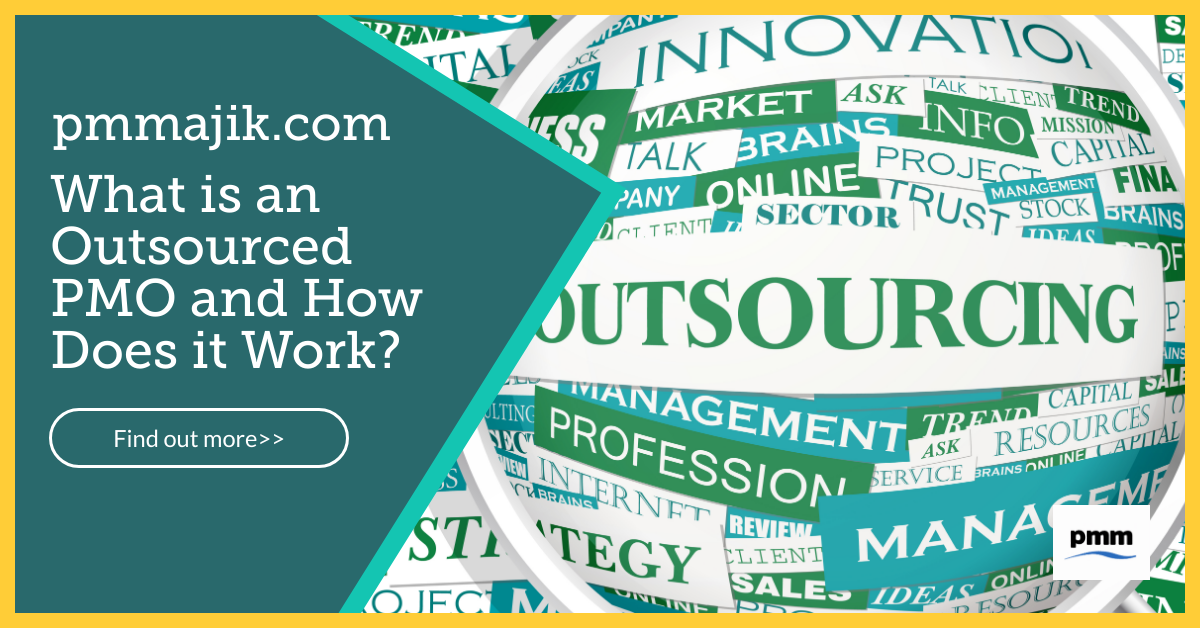Outsourcing is a strategic decision for a business yet contracting your project management office (PMO) to an outside company might not be an obvious option. We’re going to look at what an outsourced PMO is and how it can work within a business.
The uses cases for outsourcing some or all of your PMO functions are usually around speed, scalability, and cost. With a PMO being so integral to project functions, understanding what the outsourced model looks like is vital.
To help you understand how bringing in a contracted PMO could help your projects, we’re going to cover:
- The key functions of an outsourced PMO
- How different types of PMO can work on a contract basis
- The pros and cons of using an outsourced office for each model
What does an outsourced PMO do?
An outsourced PMO takes on the functions and responsibilities of the office and should have the same deliverables and KPIs as an internal PMO would have.
You can expect an outsourced PMO to:
- Ensure that projects are delivered on time and on budget
- Control and standardise project processes with your change agenda
- Act as a data and knowledge repository for project teams
- Support project workers and offer expert advice on project methodology
- Report on activity and identify issues that need to be addressed within projects
It’s important to have a strong contract that outlines the responsibilities and expectations of a PMO. There can be many elements that are beyond their control or scope that can affect projects that need to be taken into account.
How does an outsourced PMO work?
There are different types of PMO which have different use cases depending on the type of organisation and the support your projects need. We’re going to look at three of the most common PMO types and how outsourcing this type of PMO would work.
Outsourcing a supportive PMO
A supportive PMO is there to provide expertise and guidance to project teams. It can offer training and other ad-hoc advice about working within a project framework.
You’d also expect a supportive PMO to track data and produce reports to spot challenges within projects.
In terms of using an outsourced of offshore PMO, you’d expect your project teams to have access to support and expert knowledge through an LMS or live contact. Regular reporting and analysis would also be part of the package.
Although potentially very useful to new project teams and a company kickstarting their transformation agenda, it can be hard to quantify the benefits of this type of PMO.
Outsourcing a compliance PMO
The role of a compliance PMO is to ensure that projects meet internal standards and regulatory requirements; the assumption being that if all targets are hit, projects will be delivered.
In an outsourced arrangement, you can expect the contracting company to be experts at the project methodology that you’re using. They will have processes and frameworks ready to drop into your organisation, saving time and resources developing them yourself.
There will be a strong element of reporting on compliance issues. Choose a contractor that’s acutely familiar with your industry if your projects have a strong element of regulatory or legal compliance – you’ll want the PMO to know the rules your projects need to follow.
Outsourcing a directive PMO
A directive PMO provides management excellence and will likely have project managers working directly through it. KPIs are set, policies are set and monitored, and a consistent project approach are all characteristics of this type of PMO.
It can be a challenge to outsource all functions of a directive PMO – you may experience a lot of push back from project workers when they have an external project manager assigned to them.
However, it can be a quick way to get a lot of projects started in a short timeframe with a PMO and management team dropping into your organisation. It may be a challenge to find this type of PMO consultancy since there is a lot of talent required to be on hand.
What does an outsourced PMO look like?
Along with these three broad options for outsourcing your PMO, you can choose to have some functions on hand while keeping others in-house. Your PMO may not have resources on hand to create automations or set up data pipelines yet, so this work can be contracted out in the interim. Deciding what your outsourced PMO will look like and what it will do is the first step in bringing in an external PMO provider.






